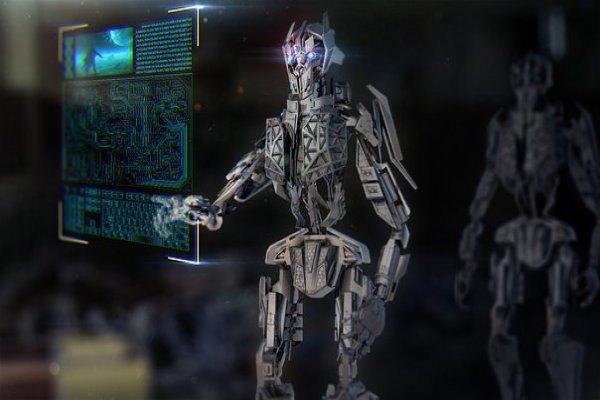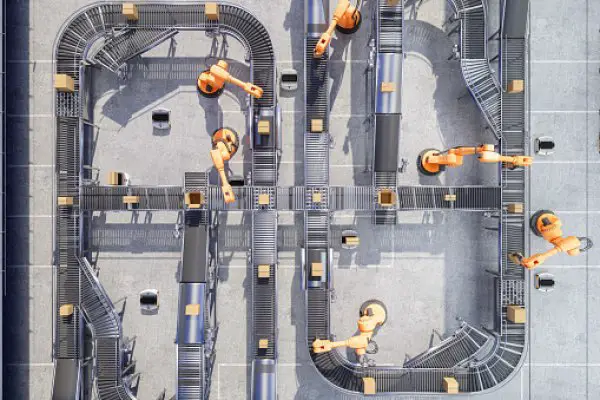In the 1930s, economist John Maynard Keynes speculated that by 2030, people would only be required to work 15 hours per week. Unfortunately, his prediction has yet to come true; however, he may have foreseen the potential of ChatGPT in today’s modern age.
AI platforms are revolutionizing work, education, public services, and art, transforming them unprecedentedly. This transformation is powered by various AI technologies allowing efficient operations and innovative solutions.
AI creates both chances and potential dangers for African governments and societies. Developing proper methods to benefit and protect from AI is urgent to determine the continent’s future. Choices carried out shortly will shape what Africa looks like over time.
GPT-4, an AI research laboratory Release from OpenAI, has demonstrated superior performance to its already competent predecessor, GPT-3. The evaluation of the two iterations showed GPT-4 reached the 99th percentile, whereas GPT-3 achieved only the 31st.
As the versions of this technology become increasingly sophisticated, its capacity for creating something from nothing is likely only to be strengthened. Newly released versions are likely to bring even more precise and expressive generativity.
First Baron Keynes, John Maynard Keynes, was an English economist who lived from 1883 to 1946. He made significant contributions to economic theory and is widely seen as the founder of modern macroeconomics.
Unlock Your Creative Potential With AI Technology
Dall-E 2, Stable Diffusion, Lumen5, Soundraw, and PodCastle are just some of the many AI programs that can create art and royalty-free music simply from text prompts.
Day by day, we move from scarcity and practicality into philosophy, where the resources and opportunities are seemingly endless. As we proceed, we explore what this new world offers – considering ideas such as abundance, potentiality, and imagination.
These questions lead us to contemplate the definition of being human: can an AI be considered human if it appears to think like one? How do we occupy our lives if our labor is not required? Is art still art when not crafted by a human hand?
The onset of AI is putting us, our governments, businesses, and societies in a position where we must answer important questions quickly. With ChatGPT-4 now available, which is no mere April Fools’ Day prank, it’s clear that AI will dramatically alter the world as we know it. Brace yourselves!
New technologies can solve specific concrete problems depending on the country or region. Undoubtedly, the issues these technologies may help rectify differ from one area to another.
The African AI market is rapidly expanding, yet its digitalization occurs in fits and starts. Accessibility of this technology has been hindered in many countries due to various obstacles. The recently released State of AI in Africa reports display this situation.
ChatGPT, if free to access and use, could potentially level the playing field across Africa due to its analytical and research capabilities. Nevertheless, it can only be adopted in ecosystems with the right conditions to compensate for the growing brain drain.
A lot of work is still needed to ensure that universal access to new technologies throughout Africa is achieved. Such access requires connectivity, affordable data prices, the availability of appropriate devices, digital skills, and an adequate energy supply for everyone.
Understanding The Extent Of Bias In Society Today
In addition, we in the continent must also consider inherent biases in the data fed into algorithms. Studies have shown that predictive algorithms can be prejudiced against black people within criminal justice, and facial recognition software tends to favor white males more than other genders and ethnicities.
Local data featuring insights from South Africa-based computer scientists like Raesetje Sefalaa is being methodically explored and interpreted to reduce associated threats. Governments, watchdogs, and other entities are aligning resources to uphold the regulation of technologies we are still unfamiliar with.
Understanding the biases of ChatGPT will take a great deal of time; however, we can appreciate how it works.
Moreover, new technology often profoundly impacts society by causing a change in the second-order impacts after it is adopted. This adoption process is delayed as people learn, adjust, and organize themselves around the new technology.
The productivity paradox is evidenced by the fact that, despite steam power being replaced by electricity as a more efficient energy source, the transition was slowed down due to various elements such as architecture, design of factory floors, business models, and expectations set by owners and workers.
Realizing the benefits of electricity on productivity took over two decades to come to fruition as factory designs needed to be restructured to accommodate this new technology. Being “late movers” may be advantageous in certain contexts as African countries can benefit from new technologies without being burdened by pre-existent structures.
What Rights Do You Have Regarding Consent & Compensation?
The utmost care must be taken to ensure that profits from this invention do not leak into a few people’s hands and remain within a restricted circle. While the knowledge it furnishes is based on contributions from all users, caution is needed to avoid constraining the valuable benefits it can bring.
AI companies such as Stable Diffusion have been subjected to new lawsuits for allegedly scraping the web for artwork and illustrations created by artists, who assert that the AI is using their work without authorization or payment.
There is a question of ensuring fair compensation for those who contribute to ChatGPT and AI, all included in this. Is there any way to guarantee this?
AI is simply a compilation of existing things, but things are always outside its scope- the unknown and what does not exist online. Thus, researchers and experts will still be needed to fill in these gaps, as AI cannot learn new information for us.
Even though the world still doesn’t know much about Africa, often called the “dark continent,” AI could help discover new information. Humans still have much room to uncover facts and knowledge regarding this region.
ChatGPT provides this and more, with its ability to generate informative and engaging content on various topics. As a large language model trained by OpenAI, ChatGPT has the potential to change the way we consume and interact with op-eds, opening up new possibilities for discourse and debate. The buzz around ChatGPT is well-deserved, as it represents a significant step forward in the evolution of the op-ed scene.
Source: Daily Maverick



